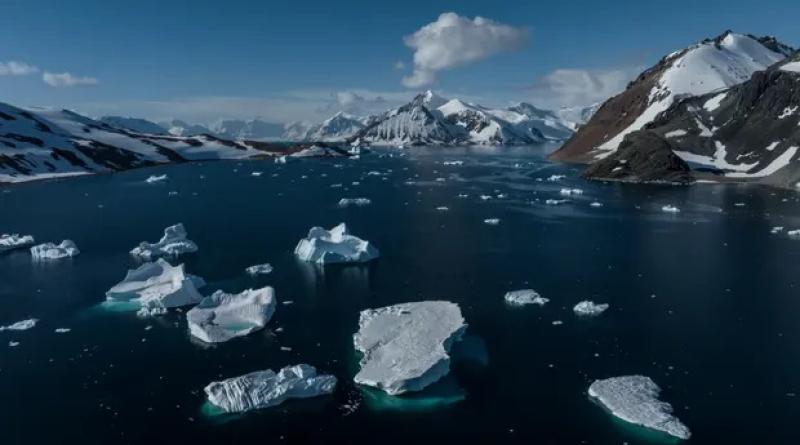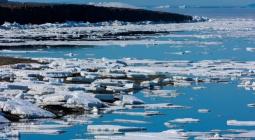Slowing ocean current caused by melting Antarctic ice could have drastic climate impact, study says

A major global deep ocean current has slowed down by approximately 30% since the 1990s as a result of melting Antarctic ice, which could have critical consequences for Earth’s climate patterns and sea levels, new research suggests.
Known as the Southern Ocean overturning circulation, the global circulation system plays a key role in influencing the Earth’s climate, including rainfall and warming patterns. It also determines how much heat and carbon dioxide the oceans store.Scientists warn that its slowdown could have drastic impacts, including increasing sea levels, altering weather patterns and depriving marine ecosystems of vital nutrients.“Changes in the overturning circulation are a big deal,” said the study’s co-author, Dr Steve Rintoul, an oceanographer and expert on the Southern Ocean at the Australian government’s Commonwealth Scientific and Industrial Research Organisation (CSIRO).
“It’s something that is a concern because it touches on so many aspects of the Earth, including climate, sea level, and marine life.”
The finding comes months after modelling, which Rintoul was involved in, that predicted a 40% slowdown in the circulation by 2050.
“The model projections of rapid change in the deep ocean circulation in response to melting of Antarctic ice might, if anything, have been conservative,” Rintoul said. “We’re seeing changes have already happened in the ocean that were not projected to happen until a few decades from now.”
The overturning circulation originates in the cold and dense waters that plunge down deep off Antarctica’s continental shelf and spread to ocean basins globally. It brings oxygen to the deep ocean and returns nutrients to the surface ocean.
“What’s driven the slowing is the fact that that dense shelf water is not as dense as it used to be because it’s not as salty as it used to be,” Rintoul said.
The melting of Antarctic glacial ice, the researchers found, has resulted in additional freshwater, increasing buoyancy.
The study looked specifically at changes in overturning circulation in the Australian Antarctic basin, but the researchers believe a “circumpolar slowdown” is occurring.
“The Australian Antarctic basin is the best ventilated of all the deep basins in the sense that it gets more … oxygen-rich water getting to the the bottom,” Rintoul said. “The signal in that basin might provide a kind of early warning of changes that might happen around Antarctica.”
Dr Ariaan Purich of Monash University, who was not involved in the research, said the Australian Antarctic basin was downstream of the region in Antarctica experiencing the greatest melt of ice shelves and loss of land ice. “In that sense, it makes it an important region to study to see these meltwater impacts on the ocean circulation.”
Purich described the paper as significant for providing observational evidence for the slowing of large-scale ocean overturning as a result of the melting Antarctic ice sheet.
“We’re now seeing lots of lines of evidence that this melt water isn’t only increasing sea levels – it’s affecting the climate system in lots of different ways,” Purich said.,
“This is pretty confronting. These are big changes that are happening in Antarctica that can affect our global climate.”
Between 1994 and 2017, there was a net slowdown in the circulation by 0.8 sverdrups per decade, the study found. One sverdrup is a flow rate equivalent to 1 million cubic metres per second.
The researchers found a temporary increase in the overturning circulation between 2009 and 2017, as a result of increased sea ice formation. “That was enough to compensate for the melt from glacial melt for a few years,” Rintoul said.
“We expect in the longer term that while there will be ups and downs related to sea ice formation, the overall trend is that Antarctica is losing more ice, is melting more, and that will gradually slow down this overturning circulation.
“Unless we act soon we will commit ourselves to changes that we’d really rather avoid,” he said. “We need to act to reduce emissions and we need to do everything we can as fast as we can.”
The study, whose first author is Kathryn Gunn of the CSIRO and the University of Southampton, was published in the journal Nature Climate Change.
cover photo:Melting ice in Antarctica has affected a key global ocean current, research suggests. Photograph: Anadolu Agency/Getty Images







